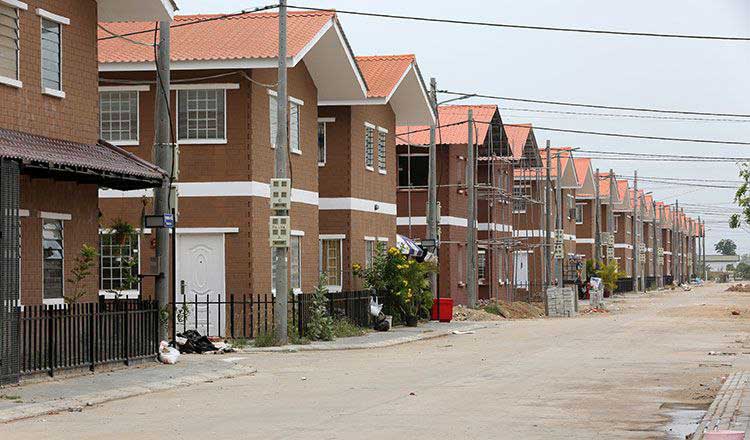Property | NBC, IMF review housing price index methodology
.
.

The National Bank of Cambodia (NBC) is currently working with the International Monetary Fund (IMF) to review the methodology for measuring housing prices nationwide under the Residential Property Price Index (RPPI), an inflation monitor first installed by the NBC in 2022.
The review comes in the background of a detailed report initiated by the international organization in January, which suggested some oversights in the current data and methodology used to formulate the RPPI by the NBC, which may be inflating the index’s growth, and overestimating house price increases.
RPPI is an important indicator of inflation levels within the economy, alongside the Consumer Price Index (CPI).
In the same fashion that the CPI compares periodic consumer price trends, the RPPI provides an overall national housing price index based on data from housing loans issued by Cambodian banks.
As Cambodia witnessed a boom in the real estate sector between 2017 and 2021, the NBC launched the RPPI in mid-2022 to specifically focus on the rise and fall of residential housing prices, as a guide for managing economy-wide inflation levels.
In June 2022, the newly instated RPPI index indicated a 9 percent increase in housing prices nationwide compared to 2020 levels.
By mid-2023, the RPPI had undergone a significant 16 percent rise in housing prices.
As of the first quarter of 2024, the RPPI dipped somewhat again to 12 percent, compared to 2020 prices.
In the corresponding period, however, Cambodia’s inflation rates have remained low compared to other countries in the region.
The Asian Development Bank (ADB) for instance forecast Cambodia to have only around 2.0 percent inflation this year, while Laos is predicted to see 20 percent and Myanmar 15.5 percent.
Based on this potential discrepancy between RPPI and CPI rates, an IMF technical mission led by senior economist Barra Casey visited Phnom Penh in January to assess the current RPPI methodology adopted by the regulator, and ensure the price rises demonstrated by the index were accurate.
In a report following the mission, the IMF highlighted discrepancies between published data and updated figures which may have led to higher than actual RPPI growth rates in 2023.
Furthermore, the report identified some significant limitations in the RPPI’s data collection.
For instance, the current method relies only on loan data from Cambodian banks, which is therefore excluding purchasing in cash, foreign bank loans, or property developer purchases.
Meanwhile, the IMF report also assessed that the housing index currently doesn’t encompass apartments into the final data, which may be skewing results.
Following the report of the technical team study, the IMF has offered several recommendations to the NBC which it believes will address the current limitations of the index.
Firstly, the IMF has suggested the expansion of data sources inside the RPPI to ensure that it is truly representative of the real estate market.
The IMF said that bank loan data should be collected alongside other relevant data from sources such as the General Department of Taxation (GDT) and real estate website listings.
By increasing data inputs, more accurate price guides are possible, and a more accurate final index.
The IMF also called for enhanced geographic coverage in the index’s data collection in coming years.
Namely, the IMF recommended that NBC divide conglomerated Phnom Penh statistics into sub-indices based on central, inner-suburban, and outer-suburban areas.
The IMF also recommended lowering the minimum land area considered for home loans, excluding property developer loans, and including data from microfinance institutions (MFI), especially for provincial transactions where such services are widespread.
Following the recommendations, the IMF, in collaboration with the NBC, aims to finalize and make public the revised methodology for the RPPI by December 2024.

@[email protected]


 Memento Maxima Digital Marketing
Memento Maxima Digital Marketing






